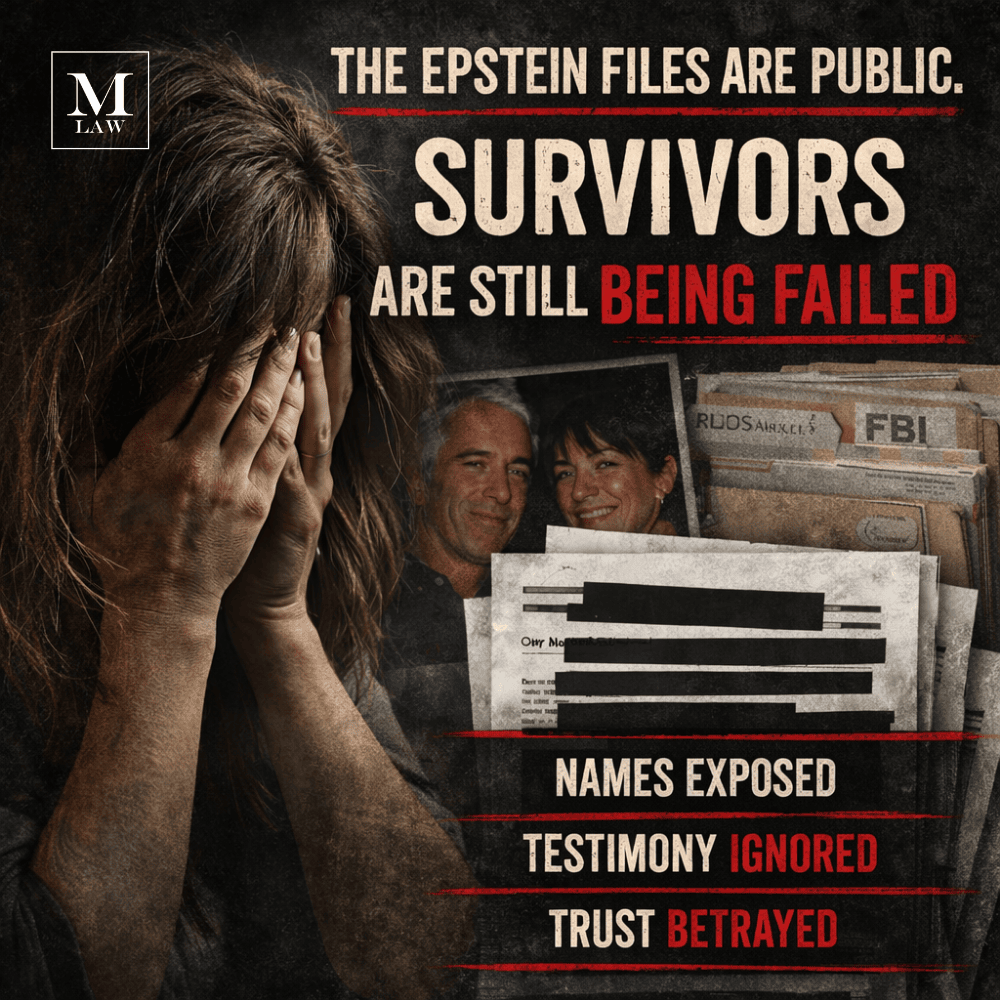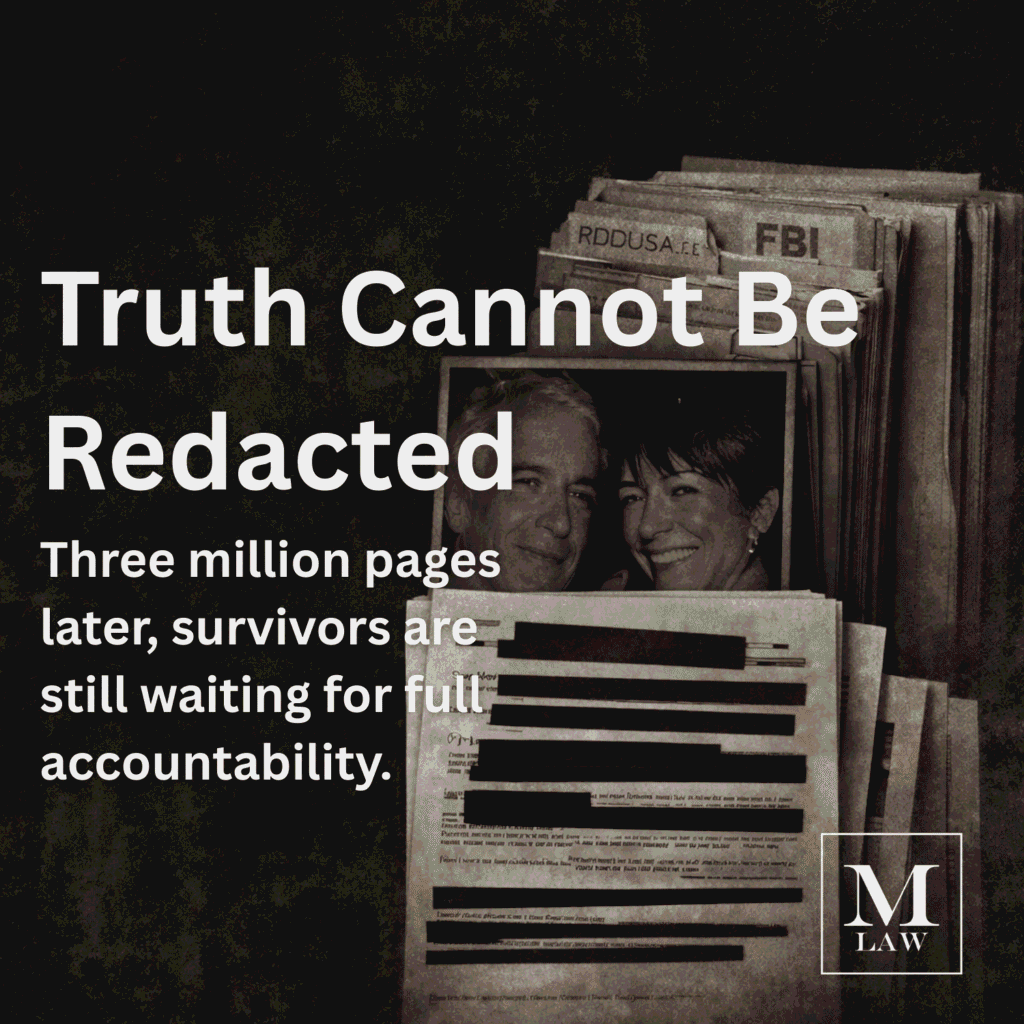If you have been the victim of sexual abuse when you were a child, help may be on the way. Read the article below and call Merson Law immediately so that you can be advised of your rights. We will meet with you without charge and complete confidentiality.
New York lawmakers have few excuses with myths debunked about child sex abuse legal reform
MYTH: Extending the statute of limitations and granting a lookback window would spur a torrent of lawsuits and bankrupt religious organizations and groups like the Boy Scouts.
REALITY: Financial ruin is a commonly used argument against changing the law, but experiences in other states don’t appear to justify the dire predictions.

Kathryn Robb, abused by her eldest brother at age 9, in the NY State Assembly chamber.
“There is a lot of Chicken Little, the sky is falling,” Hamilton said. “But if you just look at the facts in each of the states, it is a much more modest effect than they are claiming.”
Hamilton’s research found that in eight states with one-year window provisions, fewer than 3,000 people filed lawsuits. In California, which enacted a one-year window in 2003, 1,150 cases were filed.
Insurance experts, in a 2012 report, estimated that 100,000 children in the U.S. were victims of clerical sex abuse.
The Catholic Church in the United States has already paid about $3 billion to resolve child sex abuse claims, and at least 13 Catholic dioceses have filed for bankruptcy, according to data compiled by BishopAccountability.org, a private group that has tracked the scandal.
Advocates for child-sex abuse victims optimistic of new bill
Hamilton, however, argued bankruptcy is employed more as a legal tactic to minimize payouts and draw out potential accusers rather than an expression of financial ruin.

Author Marci Hamilton has researched many of the concerns and issues brought up in response to reform.
(COURTESTY MARCI HAMILTON)
“The Catholic Church is tremendously wealthy,” added Anne Barrett Doyle, co-director of BishopAccountability.org. “It is not going to go out of business.”
Florida lawyer Michael Dolce, who was the victim of a sexual assault as a child and later led an effort to change Florida’s statute of limitations laws in 2010, said the same financial concerns were raised in the Sunshine State and “none of these dire predictions ever came to pass.”
Instead, religious groups and other organizations that deal with children enacted better safeguards to prevent abuse, Dolce added.
“It’s not about making sure everybody gets sued,” Dolce said. “It’s about making sure everyone has the right incentive to take proactive steps to make sure kids do not get hurt.”
Sex abuse survivor to tell her story to N.Y. pols, push for law
***

Child abuse victim Michael Dolce, a Florida based attorney who spearheaded reforms that was 6-years in the making in his state that eliminated statute of limitations altogether.
(COURTESY MICHAEL DOLCE)
MYTH: New York’s proposed legislation is unfair to churches and private institutions because litigants would still have only 90 days after an incident to file a notice of claims against public institutions like schools and municipal governments.
REALITY: Advocates for changing the law agree public and private institutions should be treated equally and note that at least one of the bills in New York would do just that.
An omnibus measure introduced by Sen. Brad Hoylman (D-Manhattan) and Senate Minority Leader Andrea Stewart-Cousins (D-Yonkers) would, among other things, remove the requirement that litigants file claims against public institutions within 90 days of an incident of sexual abuse.
“This is about justice for all survivors, not just those who were in a private setting,” Hoylman said.
Long Island priest suspended amid ‘credible’ child sex-abuse rap
***

Dorothy Robb Farrell, Kathryn Farrell, Ana Wagner and Stephen Jimenez, all survivors of childhood sexual abuse as they prepare for a day with legislators and staff to push for the Child Victims Act.
MYTH: Child sex abuse cases brought after so many years would be hard to prosecute or defend against because of faded memories and the difficulty of gathering evidence.
REALITY: Advocates counter that rape and murder cases, which are not subject to a statute of limitations, are often prosecuted after many years.
“Our court system is more than capable of handling complicated evidence in sexual abuse matters,” Hoylman said. “What the courts haven’t been able to do is provide justice to these survivors.”
Hamilton also argued corroborating evidence in child sexual abuse cases could still be found, such as instances where a victim suddenly starts using drugs or unexpectedly quits an athletic team after being abused.
“There were markers that the child was sending out — messages the child was trying to send out but they weren’t heard,” Hamilton said. “Looking back on it, people will remember.”

Ana Wagner, abused by her father’s friend at age 9, in the NY State Assembly chamber.
For example, first-degree rape has no statute of limitations in New York.
***
MYTH: New York’s existing law giving child sex abuse victims until their 23rd birthday to bring claims is sufficient.
REALITY: Advocates vehemently reject this argument and cite studies, including a 2010 report by the National Institutes of Health, that show up to 80% of victims wait until they are well into adulthood to come forward.
“There are many reasons why adults don’t come to grips with this for many, many years after the initial victimization,” said Stephen Forrester of the New York Society for the Prevention of Cruelty to Children, noting that sexually abused children can be intimidated by the perpetrator or may feel too ashamed or afraid to come forward.

Stephen Jimenez, abused by an Xavierian Brother at age 10, in the NY State Assembly chamber.
“I didn’t disclose until my late 20s and I was victimized at age 7,” Dolce said. “I don’t have any patience for anyone who wants to say that age 23 is soon enough. You are barely getting your bearings at that age.”
***
MYTH: Allowing a one-year lookback window will encourage people to concoct bogus accusations — against anyone or any organization — in a bid for lucrative settlements.
REALITY: Hamilton’s research found that of the nearly 3,000 cases brought in states with lookback windows, few, if any, were deemed false.
“If they don’t have facts, the case does not go forward,” Hamilton said. “And that’s what juries do. They access credibility.”







